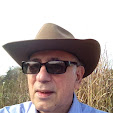The links between the healing arts and poetry are well known.
The Statute of Apollo Outside the National Academy of Athens
Apollo was recognized as the god of healing, poetry, music, truth,
the sun and light and much more
For instance, poets including John Keats, William Carlos Williams and Oliver Wendell Holmes, Sr. all received medical education.
The composition, recitation and listening to verse is known to release pent up feelings of angst, sadness, sorrow and depression--making it much easier to deal with these stressful feelings. (this subject to be explored in a forthcoming article)
Perhaps one of the most calming and stress- relieving poems is Psalm 23 which begins with:
"The Lord is my shepherd I shall not want."
The verse soothes all those who are stressed through life's travails with its lovely images such as being lead beside still waters and being guided on the right paths, though we walk through the valley of the shadow of death.
So it comes as no surprise that poetry would be a tonic for the proverbially overworked medical trainee.
Kudos to the pioneering steps of St. Andrews Medical School (founded in 1413) that acknowledges the healing benefits of poetry and the practice of humanistic medicine.
Tools of the Trade is a pocket size
book of collected poems for doctors, It is
small enough to pull out and read when needed
photo from the Scottish Poetry Library.
Each year, each of the circa 900 Scottish medical school graduates receives "Tools of the Trade: Poems for new Doctors." It's a small volume, less than 100 pages--thus easily potable.
According to a recent Wall Street Journal article, "the poems are grouped into five themes designed to help young physicians: looking after yourself, looking after others, beginnings, being with illness and endings."
May this project, though in its infancy, continue to blossom and spread the seeds of empathetic humanistic medicine.




No comments:
Post a Comment